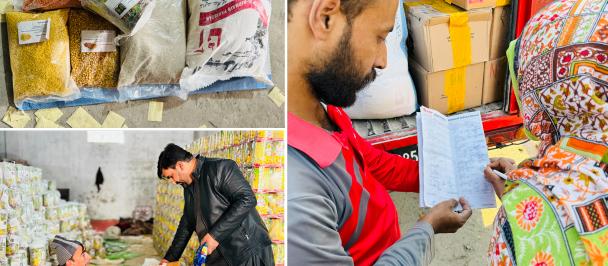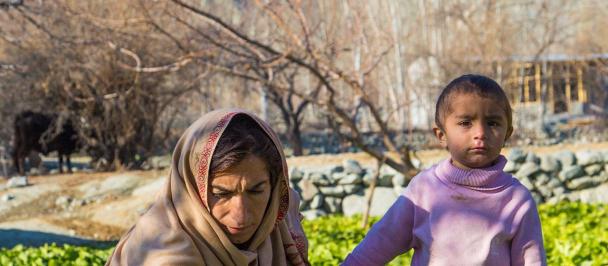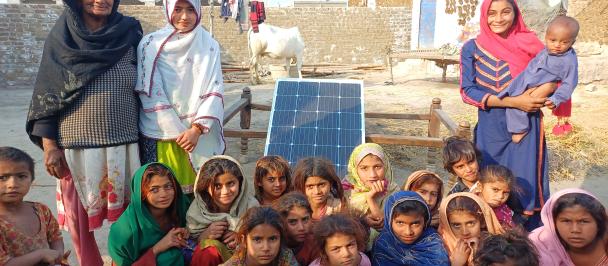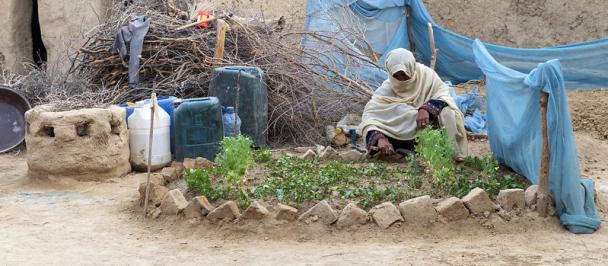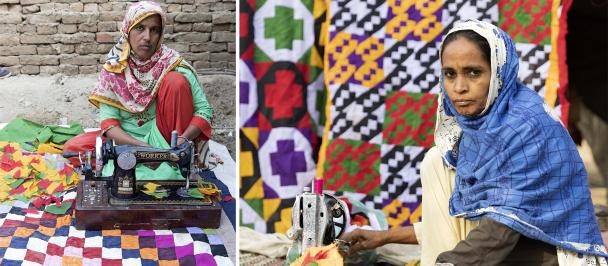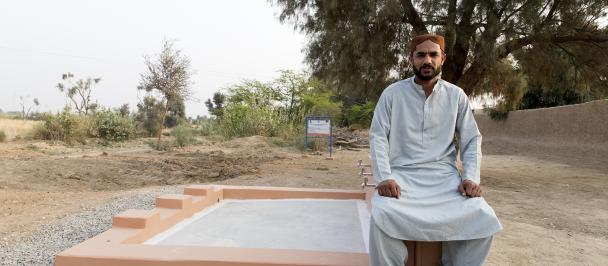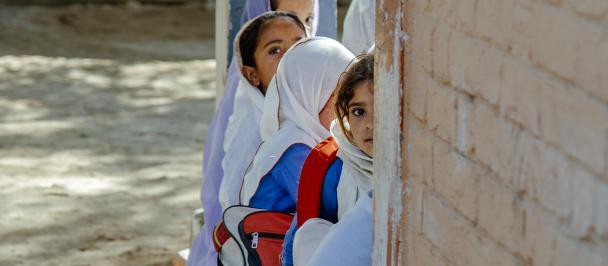Mashoom App: helping women in Merged Areas to navigate pregnancy safely
July 25, 2022
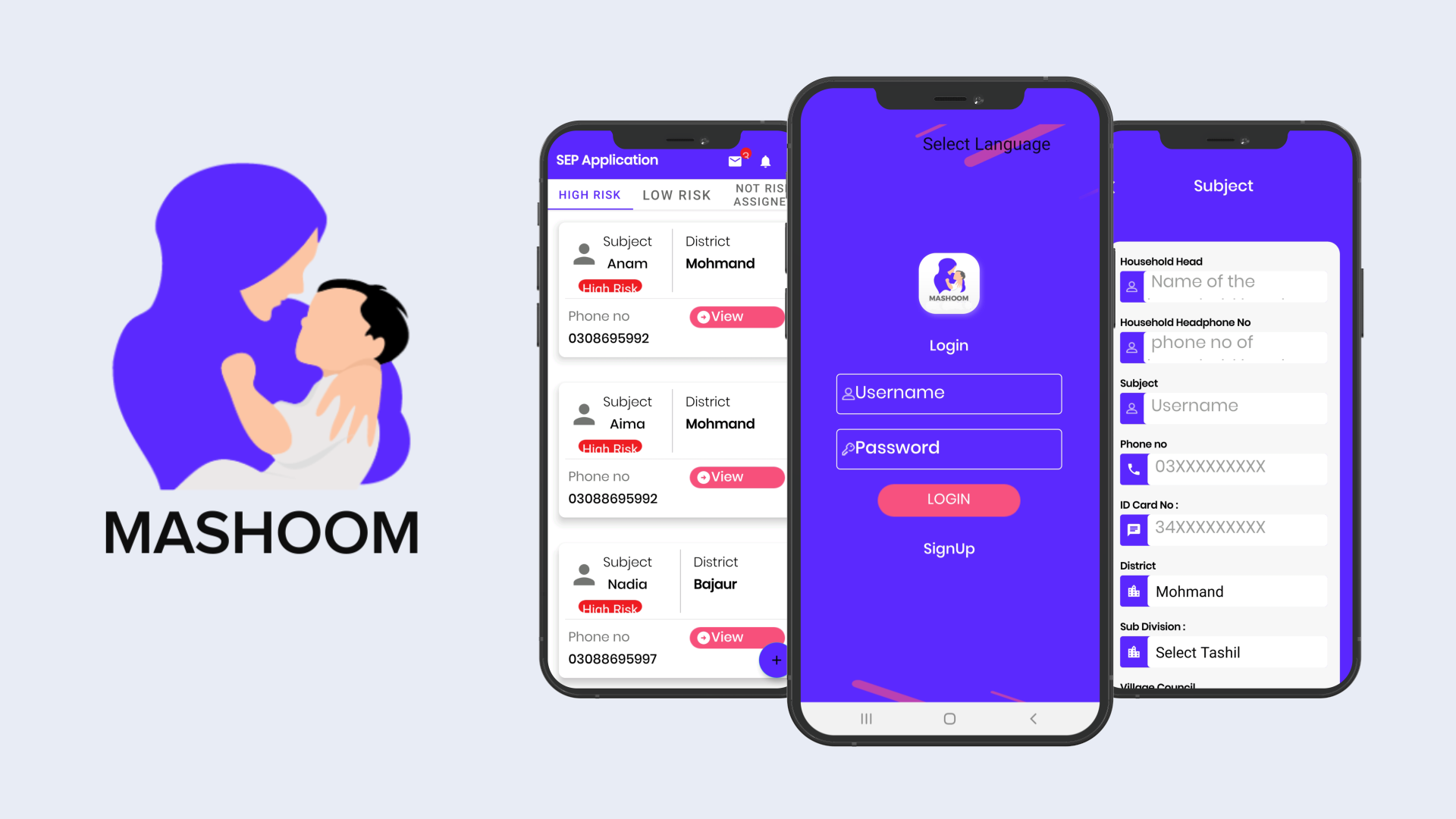
Meena is having her second child. Previously she had a daughter who did not survive after being born prematurely. Towards the end of her first pregnancy, her health started deteriorating. As the nearest health facility is atleast 30 kilometres away from their home in a small town[1] in the Merged Areas (MA), Meena’s husband called a local informally trained birth attendant in an emergency. Her condition become worse, and she delivered the baby one month early.
There was joy in their home, though short-lived.
“Soon after the delivery, I saw my baby turning blue. Her breathing had slowed down,” Farman, Meena’s husband recalls with tears in his eyes. “I knew something was wrong. I wish I knew what to do. I wish I knew how I could have saved my baby.” While the family mourned the newborn’s death, they also took solace in the fact that Meena was alive and recovering.
Unfortunately, this is the plight of many families in the Merged Areas. The region has one of the highest Maternal Mortality (MMR) and infant mortality rates (IMR) in Pakistan and the world. The MMR in the MA is 140% higher than in Khyber Pakhtunkhwa (KP) while the IMR is almost 60% higher in the MA than in the province. Only around 50 percent of the women give birth in the presence of a skilled professional.
The problem is worsened by the weak referral system, where expectant mothers, unaware of complications in their pregnancy, are rushed to the nearby primary care facility in emergency only to find out they should have gone to a secondary care hospital where they could have received specialized care. Precious time is lost as families figures out the way forward, often resulting in the death of their beloved ones.
To address this challenge and to improve the MMR and IMR in the region, the KP Government has launched the Mashoom Health Application as part of its Special Emphasis Programmes (SEP) to reduce maternal and infant mortality rates in the region with innovative use of mobile technology. Mashoom (meaning ‘child’ in Pashto) is an IT-based initiative that has been designed and implemented with technical assistance from UNDP’s Merged Areas Governance Project (MAGP), supported by United States Agency for International Development (USAID).
Currently, in its testing phase, the app aims to bridge the gap in the referral system and connect expectant mothers to remote specialist doctors facilitated by lady health workers (LHWs). The app includes questions to assess whether a pregnancy is high-risk or low-risk and gives directions to the LHWs to act accordingly. Through the app, the LHWs collect expectant mothers’ data and track their health, keep them informed, and guide them about suitable care facilities available nearby. To ensure that functions are not hampered in case of weak internet signals, the app provides an option to save the form “offline” and upload it once connected to the internet.
Other than attempting to strengthen the referral system, the app also focuses on engaging families and household heads to increase maternal health literacy through more than 50 recorded messages with information on nutrition, hygiene, and other precautionary measures. In addition, household heads also receive nudges for routine check-ups of the patient.
During the launching ceremony of the app, KP Science & Technology and Information Technology Secretary Mati Ullah Khan said the app has started a conversation around pregnancy and postnatal care in the Merged Areas, “Not only the husband or the household head, but all family members need to be informed about this since they are the ones who spend the most time with the expectant mothers.”
The Mashoom app is currently piloted in Mohmand, Bajaur and Khyber districts, where 30 Lady Health Supervisors are being trained to use the app. They will further train around 100 LHWs in each district on how to operate the app. The LHWs will then inform remote specialists about the patients who will provide guidance about the respective pregnancies and how complications can be prevented. This will ensure safe deliveries in proper medical facilities in the presence of skilled professionals, improving the IMR and MMR in the region.
For the pilot, the pregnancies of 1,500 women are being tracked through the app. The next step is to assess how many pregnant women opted for institutionalized delivery and how their health was positively impacted by using this app.
The Mashoom app is designed to expedite socio-economic development in the region. Along with this app, overall in the health sector, the Government of Khyber Pakhtunkhwa is providing portable ultrasound machines, essential medicines, and equipment as well as adding trained nursing staff.
The insights gained through this innovative initiative will further guide KP government in identifying gaps and improving service delivery for maternal health in the tribal region.
Story by:
Yusra Jabeen, Development Communications Manager, MAGP, UNDP Pakistan
[1] Utman Khel tehsil, district Mohmand of the Merged Areas of Khyber Pakhtunkhwa

 Locations
Locations



